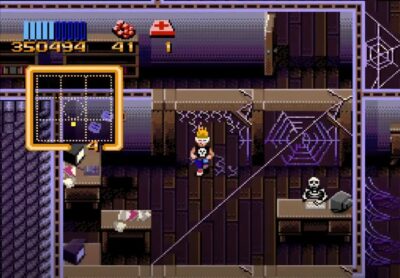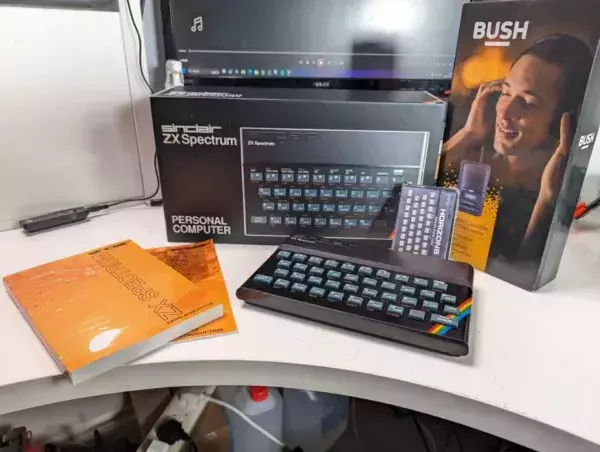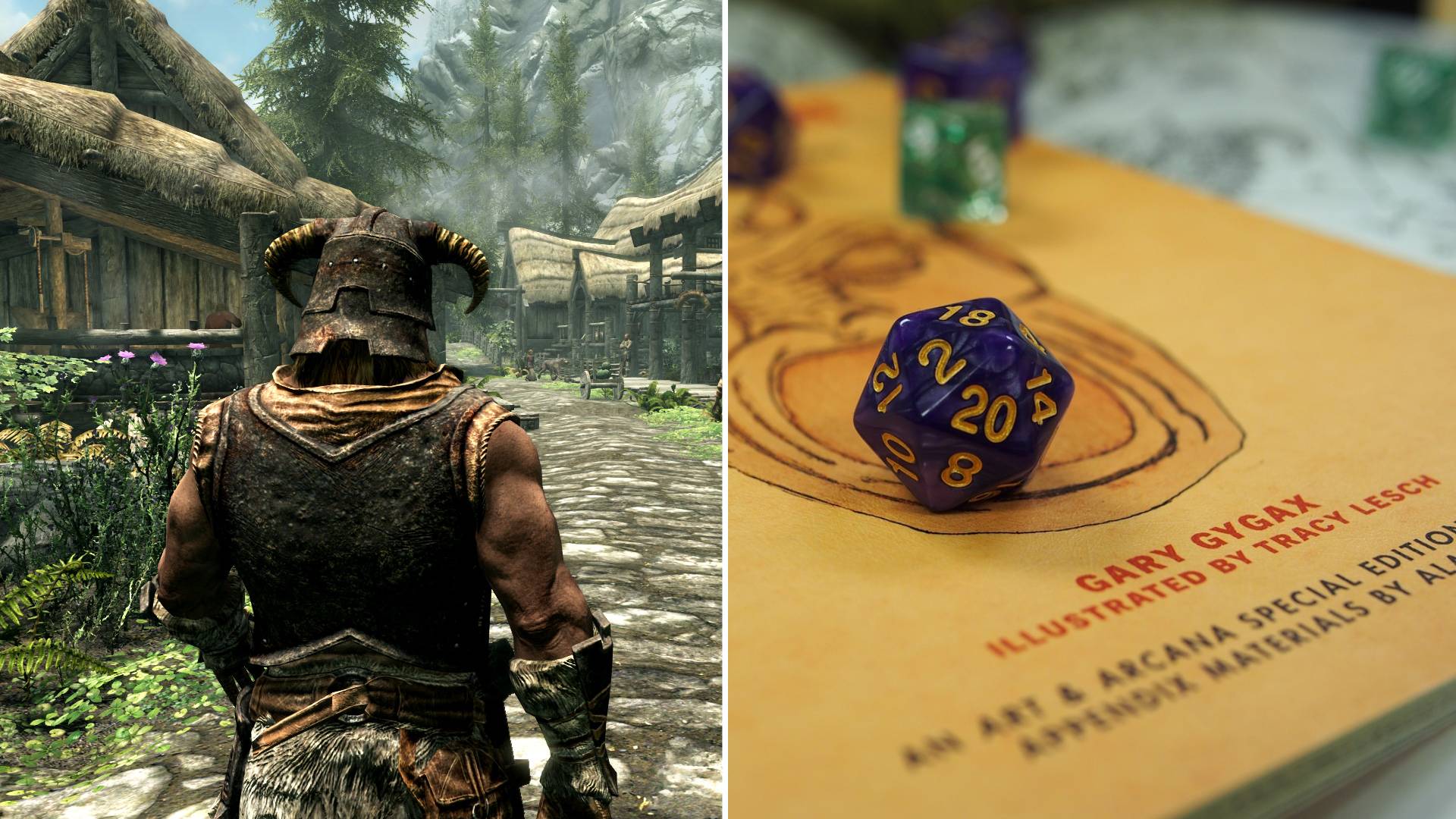
RPGs are about more than storytelling; they can also have mental health benefits and can be a powerful tool in therapy.
Since Dungeons & Dragons emerged some 50 years ago, role-playing games have been enjoyed by millions of people around the world. Far from a niche interest, RPGs can now be found in high street bookshops, on computers and consoles, and with shows like Stranger Things and The Legend of Vox Machina popularising the hobby, role-playing has become more widespread than ever in recent years. Movie adaptation Dungeons & Dragons: Honour Among Thieves, to cite a further example, recently appeared in cinemas.
Role-playing games are a form of collaborative storytelling – a way of bringing people together that feels both sociable and immersive. In a traditional tabletop RPG (TTRPG), one player assumes the role of game master, (sometimes known as a dungeon master or storyteller) who describes the setting and plot, while the other players take the role of characters in the story.
Dungeons & Dragons remains the most well-known, but there are now hundreds of TTRPGs available in every genre imaginable. These range from the science fiction RPG Traveller to games of epic fantasy like Dragonbane. Several are based on existing franchises, such as the Call of Cthulhu RPG, set in the world of H.P. Lovecraft’s stories, and Alien: The Role-playing Game.
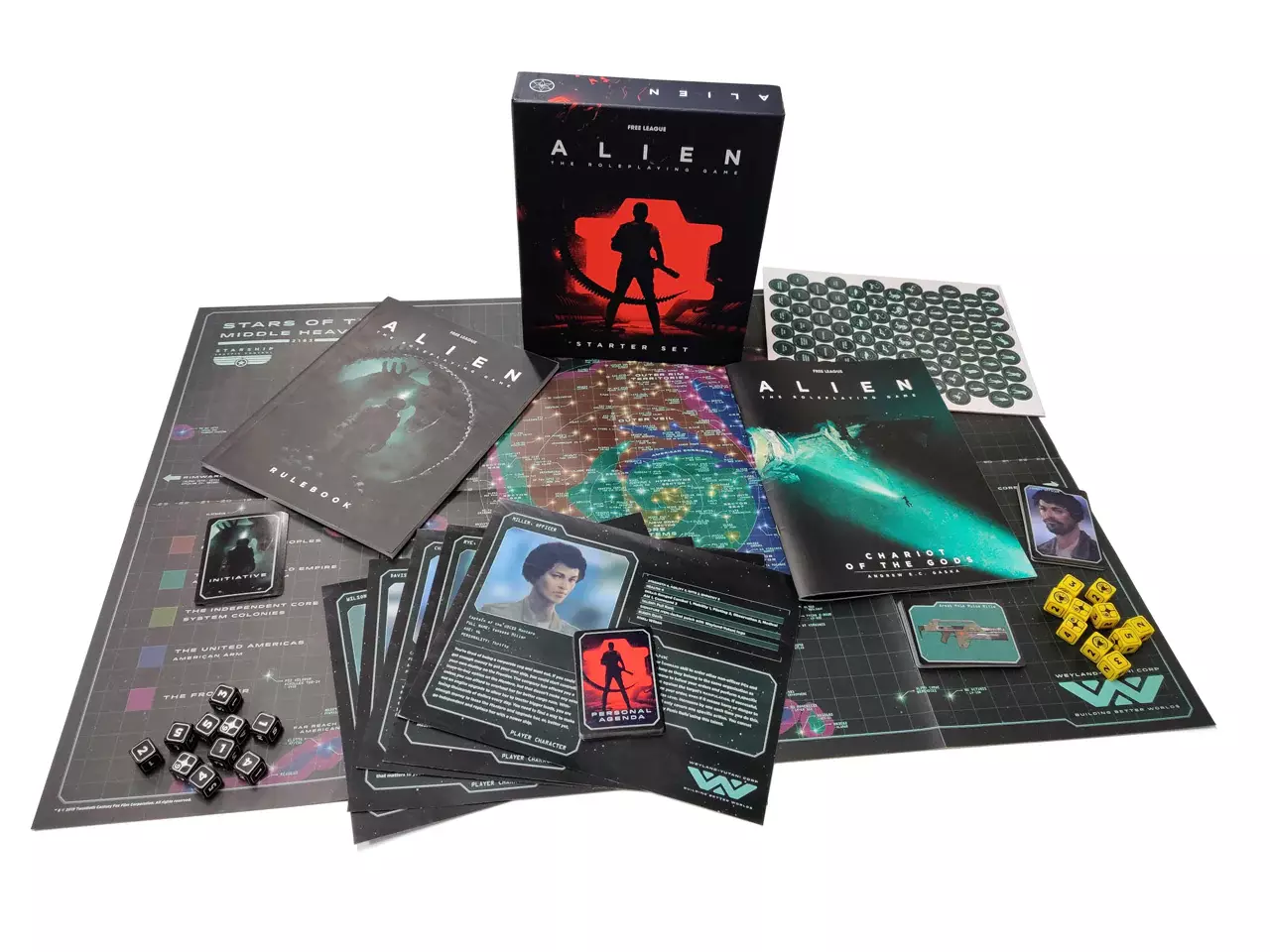
Aliens: The Role-Playing Game. Credit: Free League Publishing.
More than merely an immersive board game, though, TTRPGs have proven to be highly beneficial for the mental health of their players, cultivating collaboration, communication and problem-solving skills, as well as building confidence within a safe environment.
One of the core qualities of RPGs is their ability to let players experience an imaginary version of encounters that they would never otherwise enjoy. As players become invested in a game, their language tends to transform from the third person (“My character does this”) to the first-person (“I do this”). Although players understand that what they’re engaging in is fantasy, there’s an autobiographical element when recalling events that occur within a game, thereby creating positive memories for players to reflect on afterwards.
This is something highlighted by Dr Ian Lamond of Leeds Beckett University, and co-editor, with Rosie Garland, of Deviant Leisure and Events of Deviance: A Transgressive Compendium. (Full disclosure: the author of this article also contributed to the same book.)
“The capacity to imaginatively think through, and from, the perspective of another is an idea the poet John Keats used to suggest how we can go beyond the confines of rationality to embrace perspectives and truths that would otherwise be inaccessible to us,” says Lamond. “Role-playing games offer an opportunity to train our thinking in this way. This isn’t an abdication of our identity but a growth of it, one that embraces that of others and presents us with opportunities that can enrich our sense of being in the world, and our being with others.”
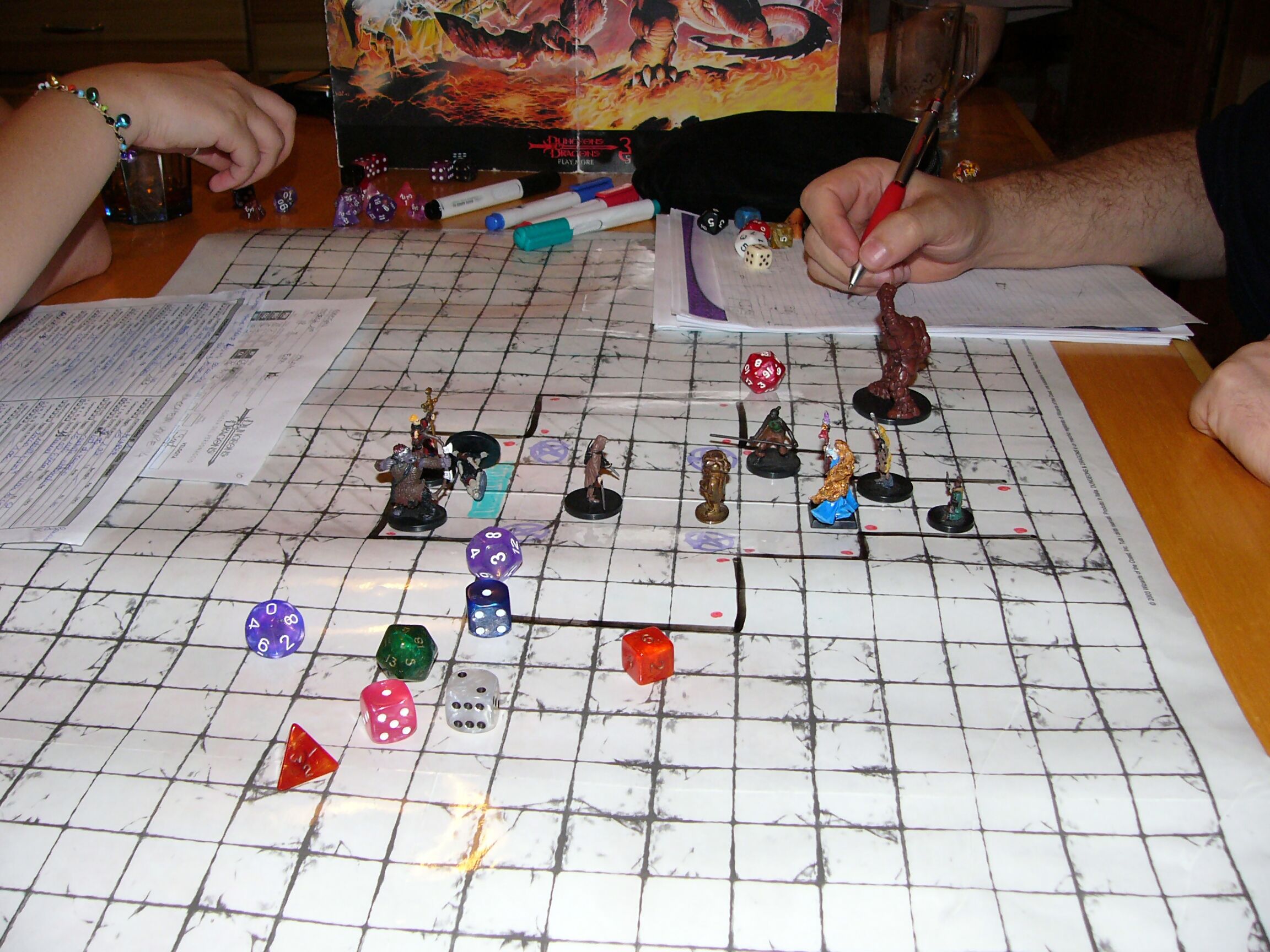
Up close with the classic TTRPG, Dungeons & Dragons. Credit: Wikimedia Commons.
As well as tabletop RPGs, there are, of course, video games as diverse as Ultima, Skyrim and Mass Effect, not to mention massively-multiplayer online RPGs like World of Warcraft. While the books and dice of TTRPGs are replaced by computers and microphones, the core element of role-playing remains – the ability to meet with friends and create stories together. This is particularly beneficial to those living with some form of disability.
“When I’m role-playing in an MMO, I’ve got things happening on screen with characters walking up to me and talking to me. If we’re using VoIP, then we might be talking over Discord,” explains Emma Stapleton, a disabled role-player. “There’s more stimulus coming in to distract me from the pain.”
Role-playing has also proven to be particularly valuable when used in therapy. HealthQuest's Dr Megan Connell, author of Tabletop Role-Playing Therapy: A Guide for the Clinician Game Master, runs tabletop role-play sessions as a form of group therapy. “One of the biggest issues we have in therapy, especially group therapy, is getting people to show up,” explains Connell. “As games are intrinsically rewarding, people want to be here.”
Connell brings together clients with compatible needs for her sessions, with an overall set of goals they can all benefit from. This enables players to work together within the game, as well as supporting each other within group therapy. Each player in a role-play therapy session is then asked to choose an emotional starting place for their character, effectively permitting Connell to create encounters based on growth points. As the player’s character overcomes those points, they’re rewarded in-game. This allows them to naturally internalise the skill their character experienced during the session.

MMOs like World of Warcraft can be a transformative experience for those living with disability. Credit: Blizzard.
“Role-playing a character gives a player psychological distance between what’s going on in the game and them as a person,” explains Connell. “This allows us to have growth, change, conflict resolution and learning all these fabulous skills, without our defence mechanisms coming into play.”
Although RPGs are typically played in person or online, the act of role-playing requires few physical components. Much of the game is played in the shared imaginations between players, where the normal rules of life don’t apply. RPGs enable players to inhabit whatever characters they imagine and in whatever situation they describe, regardless of the players’ real-world backgrounds. As such, players have a safe space in which they can experience events through a character different from how they present themselves, enabling players to safely experiment with differing ways of self-identifying. “It’s cool to have a game where you can explore being different and understanding what the world could look like from that perspective,” says Connell.
Naturally, some games naturally lend themselves to more therapeutic uses than others; a game like Call of Cthulhu, where characters encounter horrors beyond space and time, may run counter to the goals of therapy, for example. Nevertheless, role-playing games, whether played online or in person, have proven to be highly beneficial for their players’ mental health. The games exist outside the pressures of everyday life, where normal rules don’t apply, allowing players to reflect on what is and what might be.
“It’s not a brand-new form of therapy,” concludes Connell. “This is doing what music therapists, art therapists and dance therapists have been doing for years and getting results. But role-playing is an incredibly powerful tool.”
Read more: Shadow’s Edge | The game designed to help young people through tough times


